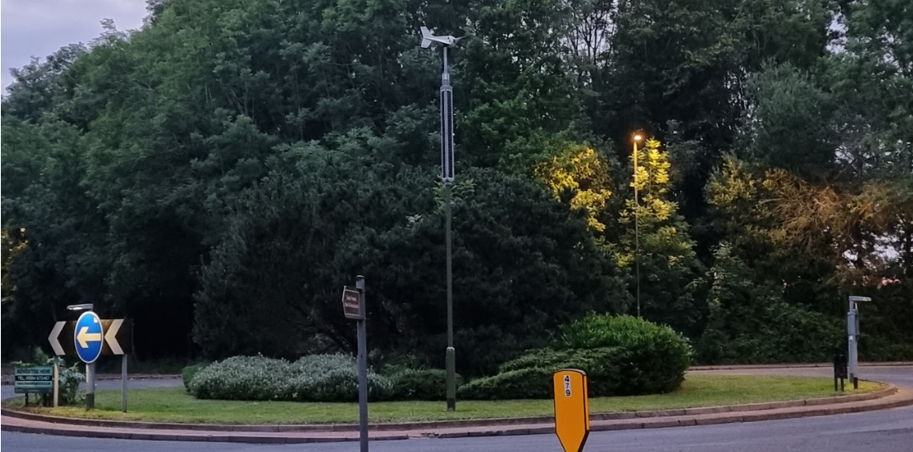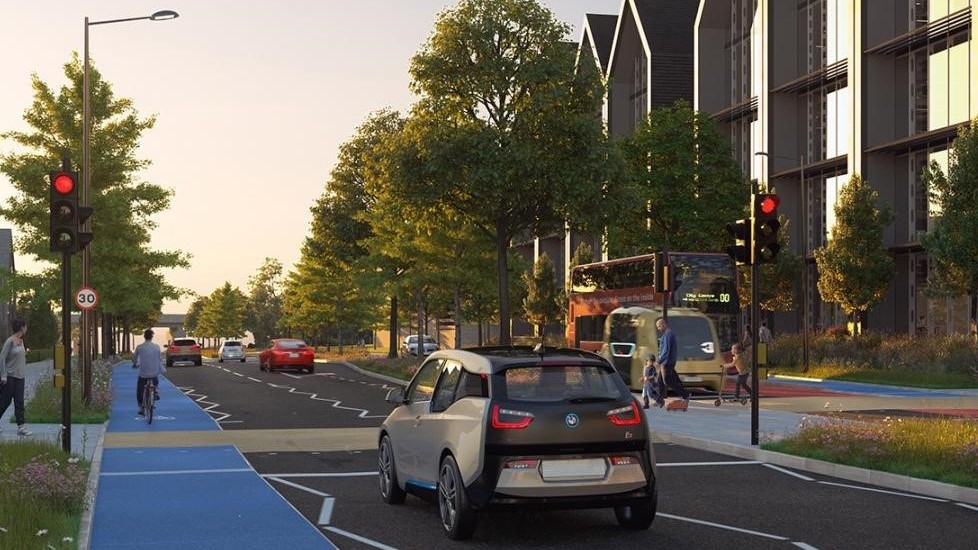Milestone Infrastructure, together with its client Oxfordshire County Council (OCC), has continued trialling Gipave, a graphene-enhanced modifier for asphalt concrete, to improve the quality of roads in Oxfordshire.
Following the success of the first Gipave trial in the UK in 2019, Milestone Infrastructure has continued working with OCC, Aggregate Industries and Iterchimica to develop the use of innovative materials to improve roads while reducing whole life carbon outputs. This has led to the team now trialling the material on Marsh Lane in Oxford, which carries around 10,000 vehicles a day and is a key route which serves the John Radcliffe hospital.
Developed by Iterchimica, Gipave is a patented graphene plus-enhanced material which can offer a more carbon and cost-effective road surface lifecycle. The asphalt mix contains not only Gipave, but also waste plastics, all of which can be entirely recycled, ensuring the sustainability of this solution.
The analysis of the first trial in 2019, showed the new asphalt material increases the lifespan of the asphalt pavement by up to 70 per cent compared to conventional resurfacing methods. In addition, the risk of rutting under load from Heavy Goods Vehicles (HGVs) is reduced by increased stiffness in the product.
This second trial is aiming to review how the material compares when used in conjunction with other high-performance ‘polymer modified’ bitumen materials on a part of the network carrying more traffic.
The project involves replacing the top 200mm of the existing road surface with a new 40mm thick stone mastic asphalt (SMA) surface course and 160mm thick AC14 binder course to be constructed in two layers with reinforcement mesh in between. Approximately half of the length of the 700m long scheme will be laid using Gipave.
Initial design calculations estimate Milestone Infrastructure’s use of the Gipave material can deliver at least a 35 per cent increase in durability compared to other high-performance materials, which has the potential to reduce carbon by 17 per cent over a 40-year lifespan (this data can vary depending on the thicknesses of the asphalt surface). This carbon saving equates to travelling 2,000 miles every year in an average petrol car, which further demonstrates the long-term carbon saving properties of Gipave.
Phil Raven, Head of Technical Design at Milestone Infrastructure, said: “This is an important trial to further test the benefits this innovative material can bring. As we look for new ways to reduce carbon emissions within highways maintenance, developing materials that last longer is an important part of our plan towards achieving Net Zero by 2040.
“Our use of this material will also bring tangible benefits to local residents and road users through reduced need for future maintenance. This trial project demonstrates the benefits of industry collaborations with a highway authority committed to trialling new innovations.”
Councillor Tim Bearder, Oxfordshire County Council’s Cabinet Member for Highways Management, said: “We are committed to improving the quality of the county’s roads as best we can within the limited budget we get from the government. That’s why we’re so keen to be at the forefront of innovation by using new materials such Gipave, which will keep our road surfaces in a better condition for longer – meaning better value for money for our council taxpayers and smoother road surfaces for motorists.”
Back to all

